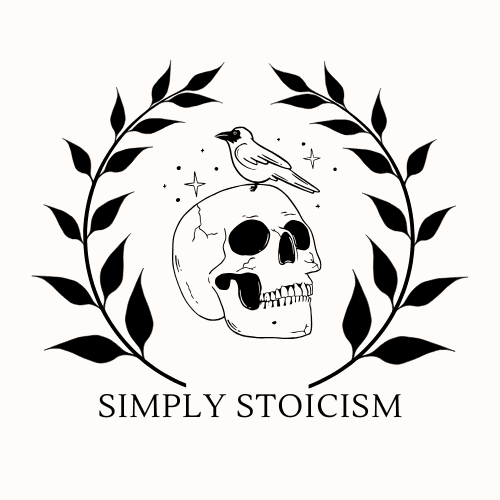How To Be Happy: 11 Stoic Strategies That Actually Work
Discover 11 time-tested Stoic strategies for finding genuine happiness in today's chaotic world. Learn practical wisdom that's helped people thrive for over 2,000 years.

Jon High
·
Dec 30, 2024
Last week I watched a friend drop $2,000 on a new TV, convinced it would finally make his living room feel complete. Two days later, he was browsing for a soundbar to go with it because something still felt "missing."
We've all been there. Chasing happiness through the next purchase, the next achievement, the next relationship. It's exhausting. And it doesn't work.
But here's what's interesting: some people figured this stuff out a long time ago. Like, two thousand years ago. And when you look at what ancient philosophers like Marcus Aurelius discovered about happiness - and compare it with what modern psychology is finding today - the overlap is kind of mind-blowing.
Here are 11 strategies that actually work. Not in a "download this meditation app" kind of way. But in a "holy shit, this completely changed how I look at life" kind of way.
1. Focus on What You Control
"The chief task in life is simply this: to identify and separate matters so that you can say clearly to yourself which are externals not under my control, and which have to do with the choices I actually control." - Epictetus
Think about your current worries. How many of them are actually within your control? The Stoics taught that trying to control the uncontrollable is a direct path to misery. Instead:
Control What You Can:
Your responses to events
Your own actions and choices
Your judgments and interpretations
Your priorities and focus
Accept What You Can't Control:
Other people's opinions
External events
The past
Natural phenomena
Practical Implementation:
When faced with a challenge, ask: "What aspect of this can I influence?"
Create two lists: "In My Control" and "Outside My Control"
Focus your energy exclusively on the first list
Practice accepting the second list without resistance
2. Do Good To Feel Good
"A good character is the only guarantee of everlasting, carefree happiness." - Seneca
Eleanor Roosevelt once said that the surest path to happiness was to seek it for others. The Stoics would have agreed wholeheartedly. They understood that genuine happiness often comes as a byproduct of serving others.
Daily Practices:
Look for small opportunities to help others
Offer genuine compliments
Listen fully without planning your response
Share your knowledge and skills freely
Volunteer in your community
The key is to make service a habit rather than a occasional event. As Marcus Aurelius noted, "What benefits the hive benefits the bee."
3. Let Go of Worry and Anxiety
The Stoics had a remarkable ability to shrug off even the worst news. Take Agrippinus, who upon being informed of his immediate exile under Nero, simply replied, "Very well, we shall take our lunch in Aricia."
Modern Application:
Start each day by writing down one thing you'll let go of
Practice the "worst case scenario" exercise
Use negative visualization to build resilience
Focus on solutions rather than problems
Daily Practice:
Identify your current worry
Ask: "Will this matter in a year?"
Consider: "What's the worst that could happen?"
Create an action plan for what you can control
Let go of what you can't influence
4. Embrace Present Moment Living
"Very little is needed to make a happy life; it is all within yourself, in your way of thinking." - Marcus Aurelius
The Stoics understood that happiness exists only in the present moment. Not in future achievements or past glories.
Practical Steps:
Practice mindful awareness during daily activities
Stop the mental habit of "I'll be happy when..."
Find contentment in the process, not just outcomes
Use physical sensations to anchor yourself to now
Regularly pause to fully experience the present moment
Implementation:
Set regular mindfulness bells throughout your day
Take three conscious breaths before starting any task
Eat one meal per day without distractions
Walk without listening to anything but your surroundings
Spend 5 minutes each evening reflecting on the day's simple pleasures
5. Cultivate Inner Worth
Your happiness shouldn't depend on external validation. The Stoics taught that true happiness comes from internal excellence.
Key Practices:
Define your own values and live by them
Measure yourself against your previous self, not others
Find satisfaction in doing what's right, not what's praised
Develop skills and knowledge for their own sake
Build character through daily choices
Daily Implementation:
Morning intention setting
Evening self-review
Regular skill development
Principled decision-making
Practicing integrity even when no one is watching
6. Build Meaningful Connections
Despite their focus on self-sufficiency, the Stoics recognized humans as social beings. "We are made for cooperation," Marcus Aurelius reminded himself.
How to Build Better Connections:
Focus on quality over quantity in relationships
Practice deep listening without judgment
Show up consistently for others
Share vulnerabilities appropriately
Contribute to your community
Implementation Strategy:
Schedule regular check-ins with important people
Practice active listening in every conversation
Join or create a community around shared values
Offer help before it's asked for
Create traditions that bring people together
7. Learn From Everything
The Stoics saw every situation – good or bad – as an opportunity for growth. As Marcus Aurelius wrote, "The impediment to action advances action. What stands in the way becomes the way."
Daily Learning Practices:
Journal about daily challenges and lessons
Ask "What can I learn from this?" in difficult situations
Study others' successes and failures
Read widely across disciplines
Seek feedback actively
Implementation Framework:
Keep a "lessons learned" journal
Review past challenges for insights
Study biographies of inspiring figures
Practice turning obstacles into opportunities
Share your learning with others to reinforce it
8. Take Care of Your Body
Physical well-being influences mental well-being. The Stoics advocated a balanced approach to physical health.
Essential Practices:
Regular exercise (especially walking)
Simple, nutritious food
Adequate rest and recovery
Time in nature
Physical challenges to build resilience
Daily Implementation:
Morning movement practice
Midday walk in nature
Evening wind-down routine
Regular physical challenges
Simple, consistent nutrition
9. Accept What Is
"Don't seek for everything to happen as you wish it would, but rather wish that everything happens as it actually will—then your life will flow well." - Epictetus
This means:
Accepting reality without resistance
Working with circumstances rather than fighting them
Finding opportunity in every situation
Letting go of how things "should" be
Embracing change as natural and necessary
Practical Application:
Practice saying "this is how it is" when faced with difficulties
Look for the hidden opportunity in every challenge
Replace "should" with "is" in your internal dialogue
Accept people as they are, not as you wish they were
Find the lesson in every setback
10. Make Time to Laugh
"He who laughs has joy. The very soul must be happy and confident, lifted above every circumstance." - Seneca
Despite their reputation for seriousness, the Stoics understood the power of humor.
Benefits of Laughter:
Releases endorphins naturally
Strengthens immune system
Puts problems in perspective
Builds social bonds
Increases resilience
Daily Practice:
Share humor with friends
Find comedy in daily absurdities
Learn to laugh at yourself
Keep a collection of funny content for tough days
Use humor to diffuse tension
11. Practice Self-Reflection
End each day with structured reflection:
What did I do well today?
Where could I improve?
What did I learn?
How can I do better tomorrow?
What am I grateful for?
Implementation Guide:
Set aside 10 minutes each evening
Use a consistent format or journal template
Be honest but not judgmental
Focus on growth, not perfection
Look for patterns over time
What Are The Best Stoic Quotes On Happiness?
"Everyone gets one life. Yours is almost used up, and instead of treating yourself with respect, you have entrusted your own happiness to the souls of others." - Marcus Aurelius
"The things which we actually need are free for all, or else cheap; nature craves only bread and water. No one is poor according to this standard." - Seneca
"We have reached the heights if we know what it is that we find joy in and if we have not placed our happiness in the control of externals." - Seneca
"It is clear to you, I am sure, Lucilius, that no man can live a happy life, or even a supportable life, without the study of wisdom." - Seneca
"Other people's wills are as independent of mine as their breath and bodies. We may exist for the sake of one another, but our will rules its own domain." - Marcus Aurelius
"Make yourself happy through your own efforts; you can do this, if once you comprehend that whatever is blended with virtue is good." - Seneca
"The happiness of your life depends upon the quality of your thoughts." - Marcus Aurelius
"True happiness is... to enjoy the present, without anxious dependence upon the future." - Seneca
"The greatest obstacle to living is expectancy, which hangs upon tomorrow and loses today." - Seneca
"He is most powerful who has power over himself." - Seneca
The Counter-Intuitive Truth About Happiness
Here's the thing about happiness: It's not a destination you arrive at. It's a skill you develop. A muscle you strengthen. A way of moving through the world.
These strategies aren't quick fixes. They're practices - time-tested tools that get more powerful the more you use them. Pick one that resonates. Start small. Be patient. And remember - the goal isn't to be happy all the time. It's to build the kind of inner strength that can handle whatever life throws at you.
Because that's what real happiness is - not the absence of problems, but the ability to thrive in spite of them.



